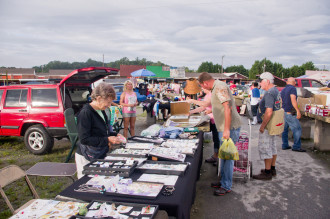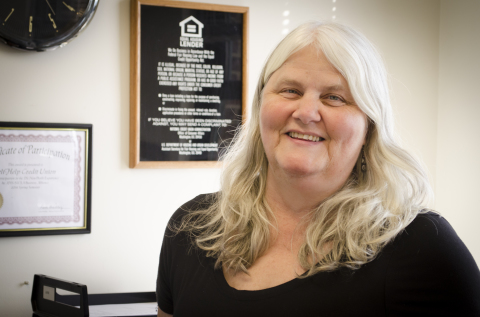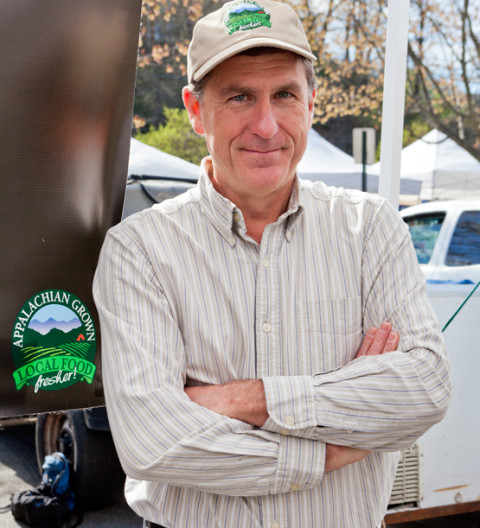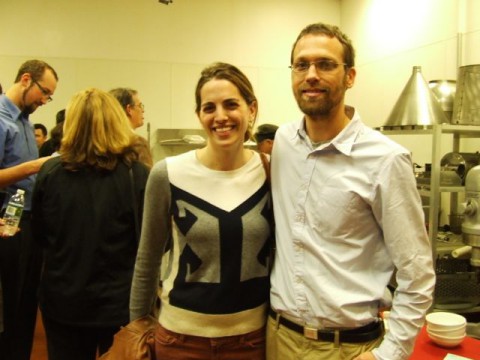“Leaders shouldn’t be so focused on turning our area into an amusement park for those with disposable cash to drop on lodging and entertainment.”


“Leaders shouldn’t be so focused on turning our area into an amusement park for those with disposable cash to drop on lodging and entertainment.”

Many issues are close to Vicki Meath’s heart. She has spent her life in community organizing, working on environmental justice with Western Colorado Congress and striving to raise Ohio’s minimum wage with Cleveland Jobs With Justice. In 2010, she joined Just Economics of Western North Carolina, a nonprofit that advocates for a living wage, as […]

“The point of this letter is to possibly begin a local discussion about what life would be like if we stopped using money.”

“Western North Carolina will soon experience environmental degradation because of our legislators’ inability to act on climate policy.”


It’s impossible to walk in downtown Asheville without receiving the message loud and clear: This city supports its local businesses. Locally based brands like Spicewalla, Roots Hummus and Buchi Kombucha appear regularly on store shelves. Stickers promoting Go Local Asheville (formerly the Asheville Grown Business Alliance), a locally focused economic alliance, adorn window fronts. A […]

“We need to invest in ourselves — pay living wages, build or convert affordable housing, expand public transportation, house the homeless, focus spending on the people who live here.”

“In order to keep local businesses open, instead of encouraging the myth that COVID-19 is an overhyped virus or hoax, let’s take actions that actually work.”

“Dee, a native of Asheville and a small-business owner, has worked for issues of justice all her life as a black woman.”

Whether you’re hunting for a bargain or looking to make some extra cash, gathering with neighbors at a local flea market could be just the ticket. Flea market regulars say the connections that form between buyers and sellers are a unique aspect of the experience, and their value can equal or exceed the monetary rewards.

“These efforts really are about protecting places for all Americans and for future generations,” notes Brent Martin of The Wilderness Society. The leaders of the national parks movement, he maintains, “all saw a much bigger picture, not only for all human beings, but for all living things.”

Hatley’s intersecting passions, which hinge on promoting local-mindedness and “the idea that all of us together form this economy,” led her to organize the Bringing It Home economic conference.

From Ed Whitfield’s keynote speech, “A Logical New Approach to Community Development,” to a panel on sources for local funding, there’s something for everyone at the March 18 Bringing It Home conference. Here’s a look at the main sessions and speakers.

The city’s local push has transformed from mere trend to full-fledged movement, a move that now seems natural, but how did local businesses get whipped into such a unified front?
The Self-Help Credit Union, in conjunction with dozens of local sponsors, is hosting a conference on our local economy. Entitled “Bringing it Home: Building a Local Economy for Everyone,” the daylong conference will explore local-centric ways to grow the Western North Carolina economy. The event will be held at the Harvey L. Haynes Conference Center […]

On Nov. 21, Gov. Pat McCrory’s office released a statement saying that all of the jobs North Carolina lost during the Great Recession — some 62,000 positions — had been gained back. Not long after, local unemployment numbers started coming in, showing that Asheville had the lowest unemployment numbers among the North Carolina metro areas at […]

One thing is for certain: If you want to hold an awards ceremony with some class, hold it at the Homewood Center in Montford. Over 50 people gathered in the elegant castle-like edifice on Sept. 11 for the Minority Enterprise Development (MED) Week Recognition Reception; the MED board handed out several awards for excellence in minority business […]

The merger of the Self-Help and United Services credit unions means that come July 1, members of both institutions will be able to access their accounts at nearly two dozen branches across the region. Both organizations are member-owned nonprofits

Geraldine’s Bakery will celebrate its recent opening with an open-house event 8 a.m. – 4 p.m. Saturday, Dec. 14. Geraldine’s, located in the former spot of Sisters McMullen Bakery on Merrimon Avenue, opened its doors on Nov. 18 after owner Fred Dehlow, a second-generation baker from New York, bought the business from Andrea McMullen.

The holidays mean decadence. Fatty foods proliferate, bank accounts go negative and children risk becoming spoiled. In the spirit of overindulgence, Asheville can now add fresh Maine lobster to the holiday table. Especially since this well-armored delicacy is now available fresher and at a cheaper price than in area grocery stores.

Advantage West held the “Fry Party” last week at a kitchen at Blue Ridge Food Ventures, located on AB-Tech’s Enka campus, to bring local attention to F3, an effort, according to project director Ron Townley, that pilots a new business model for the production of biodiesel from locally grown canola. The program, he says, is aimed at ultimately reducing Western North Carolina’s dependence on imported fuels by creating a partnership among area farmers, restaurants and biofuel producers.